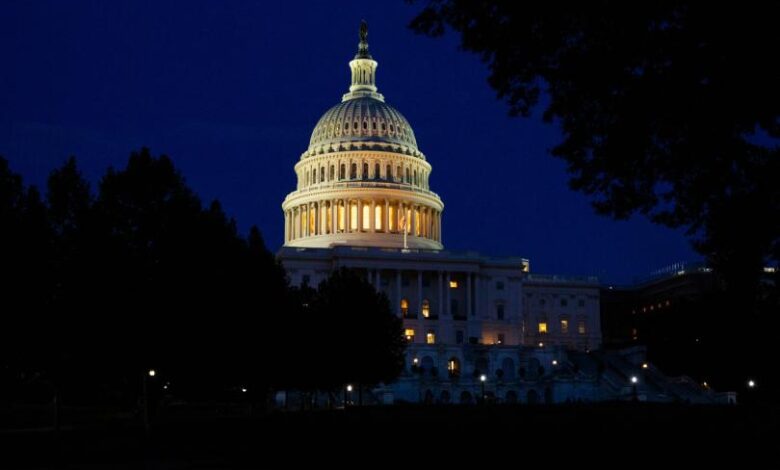Senate Committee Drafts Crypto Bill to Define CFTC Role in Overseeing Markets

تكنلوجيا اليوم
2025-11-10 22:12:00
The Senate Agriculture Committee published its draft crypto market structure legislation on Monday, bringing the body a necessary step closer to advancing its answer to the House of Representatives’ Clarity Act legislation to define how exactly the Commodity Futures Trading Commission can oversee spot market trading.
The draft bill, which still includes brackets indicating sections where lawmakers have yet to fully agree on details, marks a major step toward the government delineating where the CFTC’s jurisdiction ends and the Securities and Exchange Commission’s jurisdiction begins — a key question that only Congress can answer as these federal agencies ramp up their own efforts to publish guidance for crypto companies and other firms hoping to offer crypto-related services in the U.S.
Still, a draft is still just one step along the legislative path, and the Senate’s bandwidth has been narrowed by other urgent matters — especially the budget dispute that currently has the federal government shuttered.
Senate staffers worked on the bill through the weekend, two individuals familiar with the situation told CoinDesk, even as lawmakers worked on a deal to end the ongoing U.S. government shutdown. That latter deal cleared a procedural hurdle late Sunday, though the Senate — and House of Representatives — have yet to vote on the actual continuing resolution to fund the government.
The draft published Monday, led by committee Chairman John Boozeman and one of the panel’s senior Democrats, Cory Booker, defines terms like “blockchain” and how these concepts will apply under the Commodity Exchange Act; it directs the CFTC to engage in joint rulemaking with the SEC to address everything from portfolio margining of securities to how the agencies will oversee intermediaries.
Some of the bracketed sections include definitions for how this bill might interact with other laws. One section said the “minority view” — referring to Democrats here — is that the lawmakers don’t believe the Agriculture Committee has sufficient jurisdiction to address one part of the law, but would like to work with the Banking Committee to work it out.
Another bracketed section would direct the CFTC to have at least two commissioners with the minority party consulting on their makeup. The CFTC right now is run by a single acting chair, Caroline Pham. President Donald Trump has nominated current SEC crypto task force counsel Mike Selig to take over as chair, but he has not nominated any other commissioners.
In a statement, DeFi Education Fund Executive Director Amanda Tuminelli said, “We are hoping that the section left open for DeFi will be filled in with robust developer protections that clearly distinguish centralized intermediaries from software developers without custody and control of other people’s money.”
The Agriculture Committee oversees the CFTC, and the Senate Banking Committee, which has already published multiple drafts of its own, oversees the SEC. Both committees will need to advance their respective bills out of committee.
Before that, though, there has been considerable grumbling among lawmakers about just moving on to the markup stage — a formal process in which bills are opened for amendments before being put up for final committee votes. The Republicans in the Senate Banking Committee have also been contending with disagreement over the bill’s readiness within their own ranks, including from a critical Senator John Kennedy.
And while a large contingent of Democrats is eager to stake out common ground and pass a bill, others including Senator Elizabeth Warren have raised continual objections about the risks posed by the crypto industry and the conflict of interests presented by President Donald Trump’s personal stake in the sector.
The common wisdom among crypto lobbyists and leading lawmakers for how soon the market structure effort could clear the Senate has shifted several times, from the August deadline first set by Trump, to September, then this month, and more recently the end of the year — if at all.
The negotiations have moved in fits and starts, recently derailed for a time by a controversial set of proposals that industry insiders said would have threatened core elements of decentralized finance (DeFi). But recently meetings among crypto CEOs and key lawmakers got the talks back on track.
It may still take months for the bills to advance through the committees and get to the Senate floor for a vote, however, said Ron Hammond, head of Policy and Advocacy at Wintermute.
“It is very possible that one or both committees vote their respective version of the bill by year’s end,” he said. “However, the next step will be combining the bills and navigating the politics/various stakeholders.”
A Senate floor vote may not happen until the first quarter of 2026, “but a lot has to happen prior,” he said.




